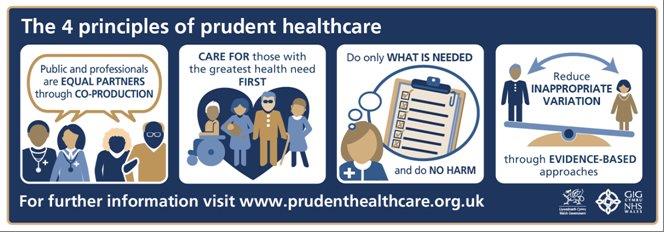The Prudent Health Care Blogs
Prudent principle three: Do only what is needed and do no harm

I have a feeling that the illustrious French philosopher Voltaire was not particularly impressed with doctors when he gave us the following pearls of wisdom:
'Doctors pour drugs of which they know little to cure disease of which they know less, into humans of whom they know nothing', and,
'The art of medicine consists in amusing the patient whilst nature cures the disease'.
Perhaps he had been on the receiving end of some adverse effect of a preferred remedy of the day or he had been attacked by a quack bearing a jar of leeches. I don't know. However, I do think he made a point which still holds true today, even with the advances we have made in our knowledge and understanding of disease and the development of evidence-based modern medicine.
When the Prudent Healthcare principles were first described some of my colleagues felt a little indignant at what principle three was implying. 'Of course we don't intentionally do harm, it's in the Hippocratic Oath' and 'Are you suggesting we do things that aren't needed? We follow guidelines and pathways after all', were common responses. This hurts us because it goes straight to the core of our values. All of us want to help, to make things better for those we care for. Now we have a lot of guidelines to help us to do that. However, in all of this there is a danger that we as clinicians default to action before fully knowing the human being in front of us, their needs,goals and aspirations.
What is wrong with that I hear you ask? We are following the guidelines. The problem is that there is a risk benefit equation with all of the healthcare that we deliver to our patients. There are also inherent problems with applying single disease guidelines to people with complex needs, particularly where the evidence quality is low. There is always a risk of harm when we intervene so should we not truly ascertain our patients' health goals and seek the least invasive way to achieve them? In so doing we will surely reduce harm and improve outcomes, whilst still practising evidence-based medicine. The goals and the solutions to reach those goals must be arrived at together having considered the best available evidence.
Harm caused by healthcare (iatrogenic harm) is both visible and invisible. Serious adverse drug reactions, hospital-acquired infections, surgical complications and medical errors are easier to identify. Less so the effects of polypharmacy , over testing and imaging or pursuing treatment which in itself may prove a greater burden than the disease.
Iatrogenesis is from the Greek meaning 'brought forth by the healer'. Let's bring forth as little harm as possible and prove that rascal Voltaire wrong.
Iatrogenesis is from the Greek meaning 'brought forth by the healer'. Let's bring forth as little harm as possible and prove that rascal Voltaire wrong.

Comments
Post a Comment